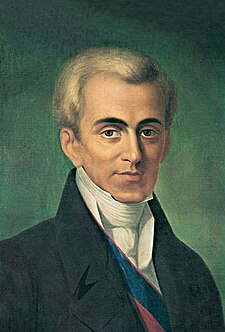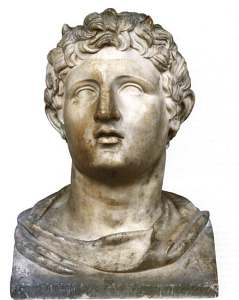 |
| Paul Lafargue :Born in 1842 by Creole parents in Cuba .He later moved in to France to study medicine. |
In 1883 Paul Lafargue who was in a French prison as a political prisoner published at the newspaper l'egalite a series of strange texts which had as a general title "The right to be lazy". Some years later he published a book with the same title causing awkwardness to right wing and leftist politicians in France and all over Europe. In this book Lafargue analyses with a strong argumentation something unprecedented.He claims that a human being doesn't need to work that working is slavery and that it exhausts physically and mentally somebody without being necessary at all.
Someone may presume that Lafargue was a lazy and unworthy person who wanted the others to work for him.However Paul Lafargue was an esteemed personality. He was a doctor and his family were owners of coffee plantations in Cuba.He was a member of the communist party with a very high position in its hierarchy and he was a secretary of the comintern department that focused on the Iberian peninsula.
 |
| Lafargue's "The right to be lazy" has been translated in many languages |
The communist ideology wasn't against working. On the contrary they believed that the working class could change the world. Therefore working was "sacred" for Communism. However Lafargue was encouraging his comrades to quit their jobs at the factories and go enjoy love and laziness.He was justifying his thought by presenting details which showed that a French worker was working more than a prisoner in prison labour or a slave in Antilles but he was earning the same money as they did and had the same quality of life.
Diachronically the leftist parties used to "ostracize" the members who deviated from the ideological correctness of the left.However the communist party had a serious problem on ostracizing Lafargue.
Lafargue had married Laura Marx who was Carl Marx's daughter and moreover best man in their wedding was Friedrich Engels. The question was, who would dare to delete from the communist party the son in law of the founder and the best man of the co founder of the Ideology of communism.? The answer was noone obviously.The communist party tolerated Lafargue's views and was always trying to cover Lafargue's unprecedented opinions by filtering them with the communist ideology. So the time in the communist party was passing like this. Lafargue persuaded the members of the party to stop working the one day, the other day the members were persuaded to return back to work cause the revolution would begin from there.
If a member of the communist party being a champion of laziness was considered awkward then Lafargue's death was even more awkward for the communist party.In 28th November of 1911 Lafargue commited suicide along with his wife .He left a note saying that he didn't want the old age to deprive him from the joys he fought for during his life. This was a really controversial statement that caused even more awkwardness in the communist party. Lafargue was 70 years old when he commited suicide. Despite his own ideology he remained loyal to the communist ideology too. Among his last words in his last note was also : Long live communism.
As we read in http://www.kersplebedeb.com/mystuff/texts/lafargue.html
Twenty thousand people attended their funeral, and revolutionaries from around the world paid their respects. Lenin – who befriended the couple while in exile – could not decide which ascetic lesson to draw from their suicide. At one point he approvingly noted that “if one no longer has the strength to work for the party, it is necessary to look at the truth squarely and to know how to die as did the Lafargues.” At another he complained that “a socialist does not belong to himself but to his party. If he can still be useful to the working class, for example to write an article or make an appeal, he had no right to commit suicide.”[ 4 ]
Of course Lenin missed Lafargue’s point, which more resembles the bohemianism of Harold and Maude than the stoic dedication of a Christian martyr. Lafargue was ideologically committed to pleasure, and seems to have felt that only a life filled with fun was a life worth living, and he could not conceive of old age being fun. That he was in good health when he killed himself, and that his wife seemingly followed suit without leaving any note of her own, seems to indicate the poverty of this position. The idea that life must be fun in order to be worthwhile seems to produce a similarly brutal economy of existence as the capitalist injuction that only a productive life is worth living.
Following his death the international communist movement forgot about most of Lafargue’s intellectual contributions. The communist press, particularly in the 1920s, underscored his ‘errors’, and with the rise of Stalinism works like The Right to Be Lazy fell into relative disrepute. It was mainly amongst independent socialists, anarchists and the small “ultra-left” that he retained his stature.













